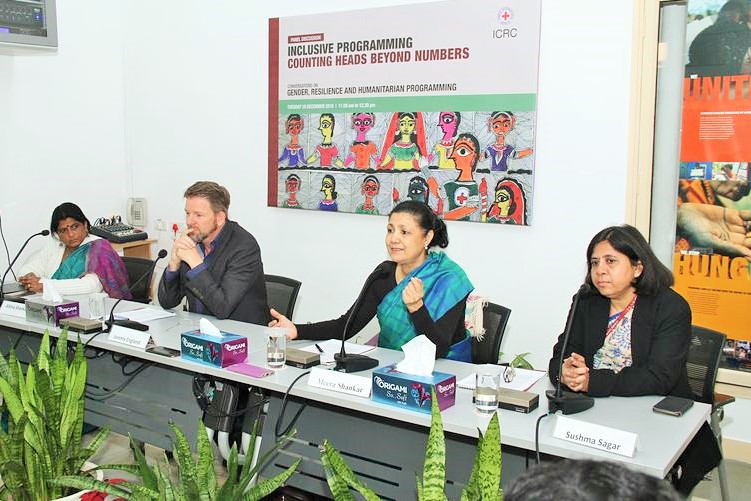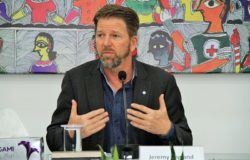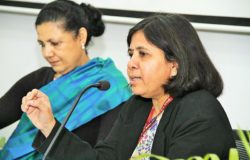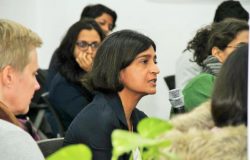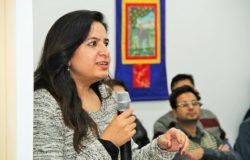Despite a chilly December morning, the panel discussion on ‘Inclusive programming: Counting heads beyond numbers’ managed a full house at the ICRC’s regional delegation in New Delhi. Taking forward the conversations initiated on Gender, Resilience and Humanitarian Programming, this edition was chaired by Meera Shankar, former Indian ambassador.
The panellists included Jeremy England, Head of the Regional Delegation; Dr Sushma Sagar, Trauma Surgeon, All India Institute of Medical Sciences (AIIMS) and Albina Shankar, Director, Mobility India who covered issues related to diversity and inclusion at the workplace and how a structured focus on inclusion impacts processes and outcomes thereby, benefitting institutions and society.
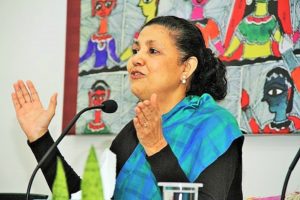
Ambassador Shankar said that to make our society inclusive, we need to make changes to our administrative and societal behavior.
“If we want to make our society inclusive for women, we need to make changes to our administrative and societal behavior,” said Meera Shankar, highlighting how we tend to look at women’s issues in a segmented way while we should actually be looking at how women contribute to the society.
Jeremy England spoke about why the ICRC has been taking the topic of inclusion so seriously. “Inclusion is a necessary condition to progress. When people feel connected, respected and are able to grow, then it becomes real inclusion,” he said, highlighting that the ‘how’ in inclusion is important for which there have to be changes in thought and action right from the top. This necessitates the creation of a taskforce, setting targets, empowering the champions, making administrative changes for which leadership support is important.
In her session, Dr Sagar, focussed on the fact that the voices of women are hardly heard in the fields of trauma and disaster. Since it is easier to put together all-men teams for disaster areas, the administration may not even think of sending a woman doctor even though half of the people in a disaster-prone area are women; as a consequence “…their health, hygiene and trauma needs are completely overlooked.”
Albina Shankar said that women with disabilities suffer multiple discrimination due to poverty, their disability and the fact that they are women. “Often a girl with disability will not be accepted by her family.” At the same time, she emphasised, that various support mechanisms exist to enable people with disabilities live a life of dignity and self-reliance particularly education, training and the use of assistive devices.
The audience engaged with the panellists on questions of policy, neutrality and reaching affected populations, practical steps towards inclusion focussing on disability. Clearly inclusion makes practical sense for a society as it stimulates creativity, brings in value and improves design but at the same time it cannot be merely relegated to discussions without the support of legislation, regulations and a clear change in attitudes, is what many expressed.
Check out photographs from the panel discussion:


